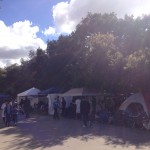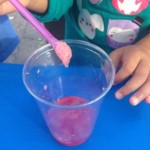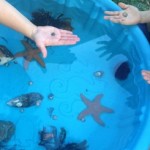I had a fantastic time volunteering at the regional Science Olympiad competition at Occidental College last Saturday.
Starting in sixth grade, I was an avid participant in Science Olymp iad, competing every year until I graduated from high school. I think these competitions provide remarkable opportunities for students to experience broader fields of science than the biology/chemistry/physics they learn in school. They can try their hands at engineering events (building trebuchets and bottle rockets) or become experts in astronomy, paleontology, forensics, and experimental design as they prepare for the knowledge events.
iad, competing every year until I graduated from high school. I think these competitions provide remarkable opportunities for students to experience broader fields of science than the biology/chemistry/physics they learn in school. They can try their hands at engineering events (building trebuchets and bottle rockets) or become experts in astronomy, paleontology, forensics, and experimental design as they prepare for the knowledge events.
I think it gives them the best insights into different science careers, giving them a chance to see how science can be used to answer real-world problems in a myriad of careers.
This was my first time on the supervising side of the competition, and I was thrilled to see so many passionate kids from all walks of life there to meet and compete with their fellow science g eeks.
eeks.
I was the event supervisor for the middle school “Green Generation” event — a knowledge test covering topics in ecology, evolution and environmental science. This event is a spin-off of an event I competed in back in the day (“Water Quality”) in which I wrote an entire essay about eutrophication without being entirely sure what it was. (Came in third, so not so bad!)

First time supervising
Many of these kids were perfectly aware of the definition and implications of eutrophication, along with a host of other environmental threats to aquatic and terrestrial ecosystems. The event was an excellent way to give students a grounding in environmental science while educating them about ways they can contribute to local solutions.
Thanks so much to everyone at Caltech and Occy for organizing this wonderful event — it is such a pleasure to be back!














